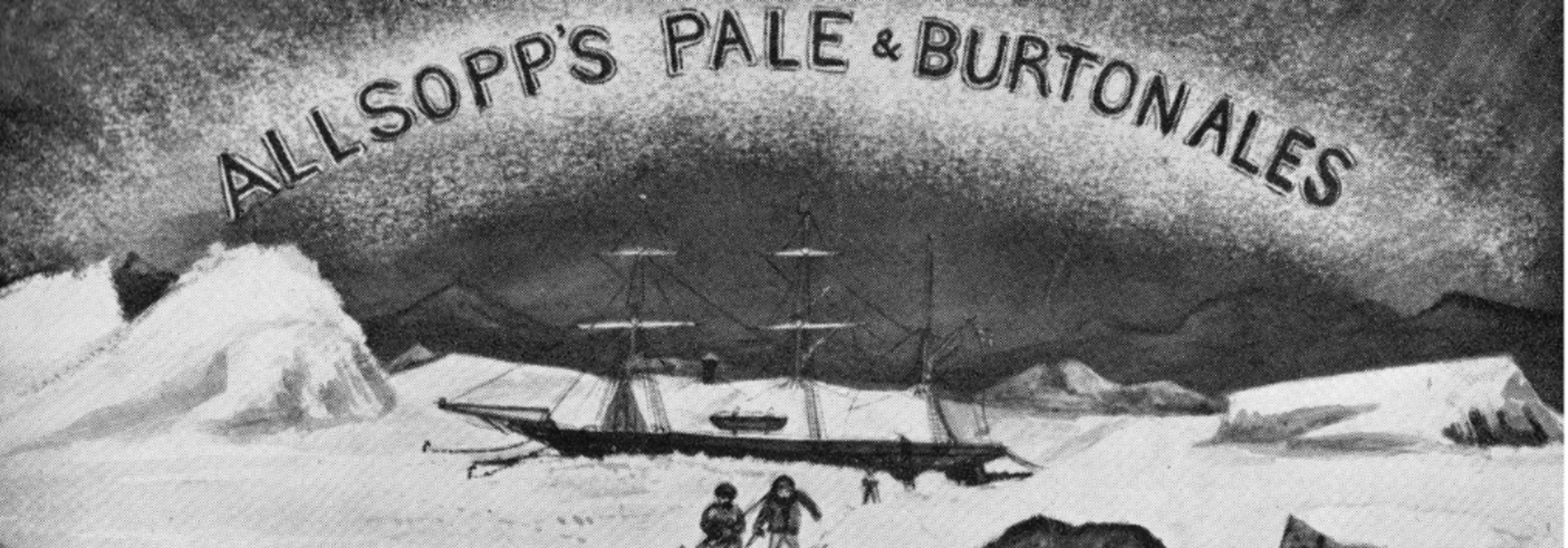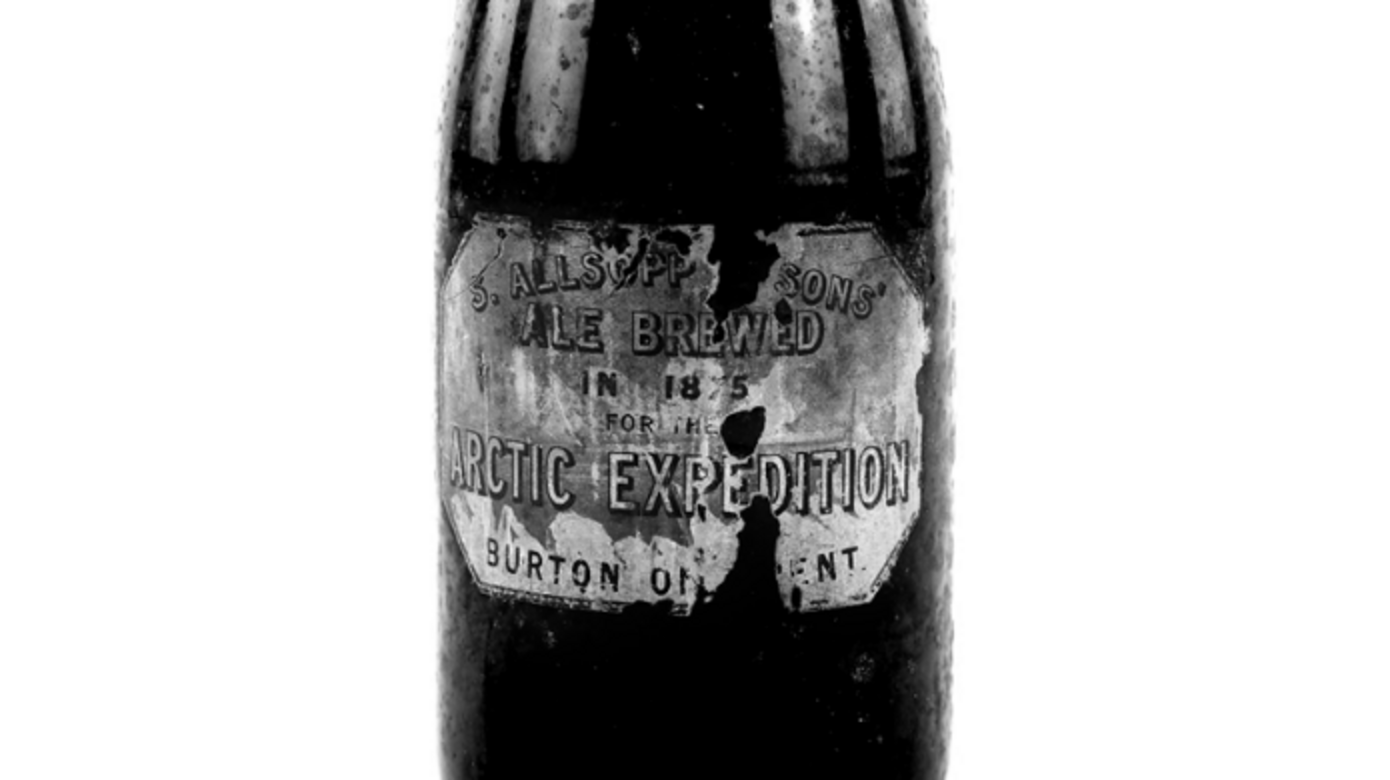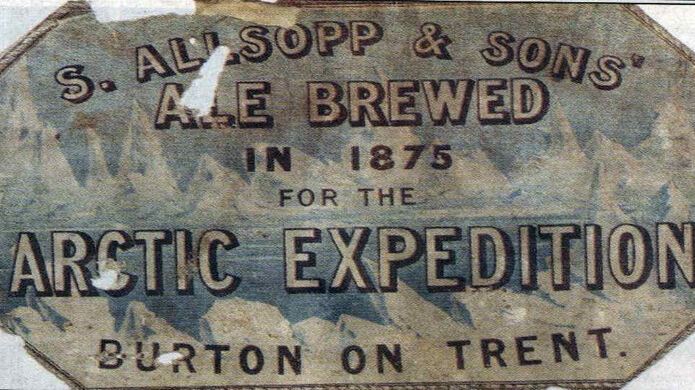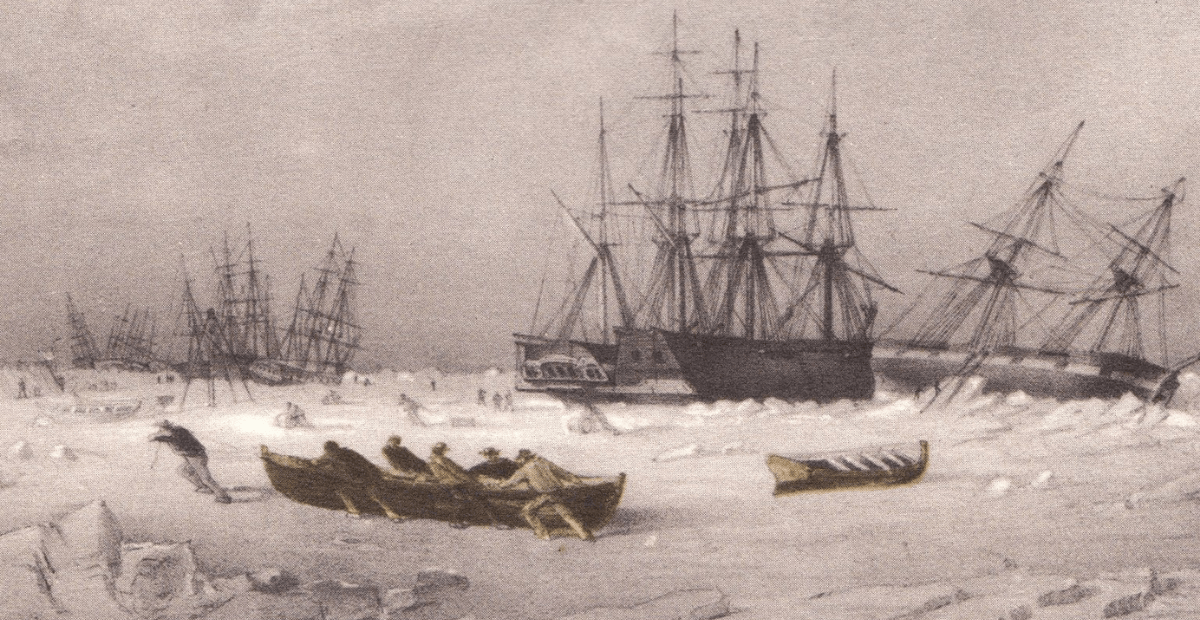
The Tale of Allsopp’s Arctic Ale
When Burton upon Trent brewers Samuel Allsopp & Sons Limited was reborn in 2021 the plan was to brew using recipes. So far, the company have produced a Pale Ale, two India Pale Ales and a Pilsner, their latest is a version of Allsopp’s Arctic Ale which is based on a recipe from 1875, a beer that boasts an intriguing history …
Before the 1914 opening of the Panama Canal, the trade route between the Atlantic and Pacific Oceans was limited to the dangerous and lengthy trip around Cape Horn via the Drake Passage or Strait of Magellan at the southernmost tip of South America. The theoretical route at the top of North America was uncharted; ships would need to travel through the Arctic Ocean hampered by pack ice, which made it unpassable for much of the time. It wasn’t until 1906 when Norwegian explorer Roald Amundsen successfully traversed it in a sailboat called a Gjøa that its existence was finally confirmed and even then, the trip took Amundsen three years!
Prior to the Norwegian’s success there had been many failures, most notably the 1845 journey of Sir John Frankin. He sailed from England with two ships HMS Erebus and HMS Terror, wintering in a sheltered bay on Beechey Island in the Arctic Archipelago of Nunavut, Canada before setting sail when conditions became more hospitable. Franklin and his crew were never seen alive again.
When it became apparent the 1845 mission had failed, various rescue attempts were made, the last being Admiral Sir Edward Belcher’s in 1852. Among the supplies his expedition was 540 gallons of a Burton Ale, brewed by Samuel Allsopp & Sons and later known as Arctic Ale.

Allsopp’s Arctic Ale, Beer for Pioneers 
Allsopp's Arctic Ale Advertising in the 19th Century
In 1851 The Lords of the Admiralty invited all the great brewers to submit samples of beer for consideration and Allsopp’s won the contract. The beer was later brewed for two further Arctic expeditions: Sir Leopold McLintock in 1857 and in 1875 for Sir George Nares.
The brewing of the 1852 beer was later described thus: The special qualities which rendered this beer so valuable for the purposes of the expedition were its strength and nutritive qualities. It is one of the strongest ales ever brewed by Allsopp’s, and it may be mentioned in passing that the consistency of the wort was such that it would not run from the copper through the tap in the ordinary way but had to be lifted out in buckets.
Allsopp’s Arctic Ale is possibly the strongest ever brewed in Burton and contained sugars which were unfermentable meaning it froze at around -41oC and could be used as a source of nutrition for the sailors. The Original Gravity was 1126 and the Present Gravity 1053, once fermented it was over 9%. To put this into context a strong bitter normally has an Original Gravity of 1050-1055.
Belcher’s 1852 mission was unsuccessful, and the fate of Franklin and his men would remain a mystery until 1981 when bones of the crew were found on King William Island, they had abandoned the ship and died of exposure, starvation and scurvy. HMS Erebus was finally found in 2014 and HMS Terror in 2016.
In 1888 brewery historian Alfred Barnard visited Allsopp’s and sampled the 1852 and commented the ale was ‘a nice brown colour, and of a vinous, and at the same time, nutty flavour, and as sound as the day it was brewed.’
In 1895 there was another account: ‘Allsopp’s have only at the present time eleven bottles of this beer left. It has been re-corked, as if it were Waterloo port. It is almost ‘still’ and, indeed, has never been very effervescent, although not at all flat. Its colour is a rich brown, and its flavour is suggestive of old Madeira.”
Although no longer required for Arctic missions, Allsopp’s continued production, the beer was certainly brewed in 1896, it was described as ‘Strong Ale (similar to that brewed by Allsopps for the English Arctic Expedition of 1875)’ that ‘improves year by year, and therefore quick consumption is unnecessary’. It was available in barrel at £5 (not including the cask) and in bottle at 7s per dozen pints and 4s per dozen half pints.
Arctic Ale would continue to be brewed and bottled in nips, in the 1950s it was advertised with the strapline ‘Keeps out the cold.’ The name changed in 1956 to Arctic Barley Wine and finally in 1970 to Triple ‘A’ (the three A’s referring to Allsopp’s Arctic Ale), it was finally discontinued in the 1970s.
In 2007 a bottle of the 1852 was auctioned on eBay and sold for $304. The name Allsopp was misspelt but following some research by the buyer it was relisted and sold for $503,000 although the final bid was a hoax. The auction was closely watched by a chap called Chris Bowen from Pennsylvania. Chris was a brewer and collector and was inspired to make a film called Arctic Alchemy when he travelled to the Arctic Circle to brew his own version of Arctic Ale.
The Allsopp’s Arctic Ale story continues, begging the question can any other beer rival its backstory? Always ask for Allsopp’s.
( written by Ian Webster )

The winter warmer, Arctic Ale keeps the spirits up
